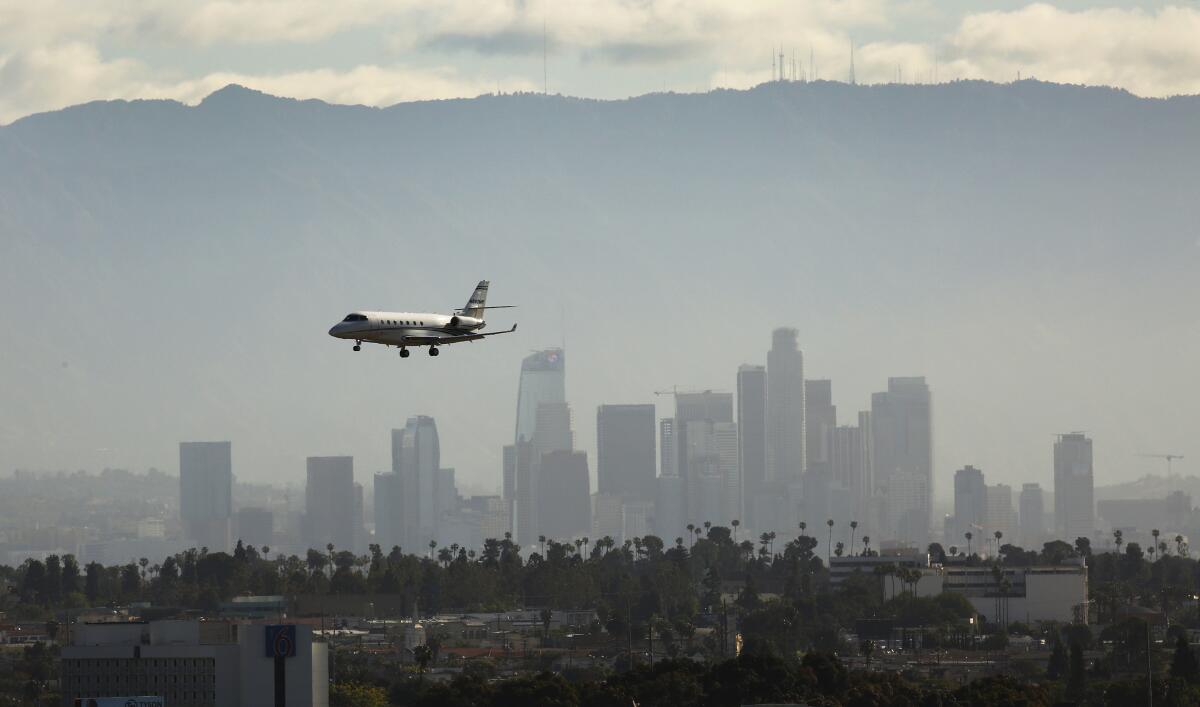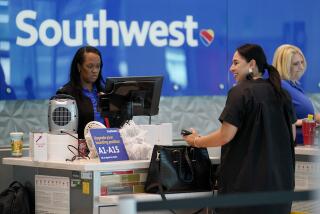The best tips for saving money on airlines and hotels this summer

I’ve been analyzing airfares and hotel rates for most of my working life and I’ve learned a thing or two or three. Here’s my latest, updated advice about lowering travel expenses.
Airfare
▶If the price of the cheapest one-way ticket is half the price of the cheapest round-trip ticket, buy one-ways on different airlines if it’s cheaper (American outbound, United inbound, for example). Here’s why: If you buy a $200 round-trip from L.A. to Vegas and need to change the outbound flight you’ll pay the change fee, which can be $200 or more (or, with some basic economy fares, lose the whole thing.)
▶If you’re searching flights for two or more passengers, try pricing one passenger at a time. If there’s only one seat at the lowest price, the airline will price both seats at the next highest fare.
▶Fares usually drop for travel after mid-August, when kids are back in school. If you can, fly then. It’s still summer, after all.
▶If you’re booking a flight on an airline to Europe that is cash-strapped — usually the ones with the lowest fares — buy with a credit, not a debit card, no more than 60 days before travel. If the airline goes belly up, your credit card company must refund your money. (Federal consumer protection rules apply.)
▶Check whether more than one airline is selling seats on the same flight. (That’s a code share in airlinese.) I recently reserved a premium economy seat to London on British Airways, but I bought it from American Airlines, BA’s code-share partner, on the American website for hundreds less than BA’s price. Plus American let me reserve a seat at time of booking for free; BA charges as much as $70 for seat selection until 24 hours before departure.
▶Beware travel sites that don’t list all airlines. Southwest lists its fares only at Southwest.com; you’ll need to check the Southwest site to compare fares. Delta has pulled its fares from some apps, including Hopper and Hipmunk.
How to tell? Do a sample search from L.A. to Atlanta and if the site or app doesn’t show Delta, you’re not getting the full picture.
▶When searching airfares, consider GoogleFlights, despite the fact that it foists its own travel and other products down our throats. Like most Google products, it’s more complicated than it needs to be, especially after a recent redesign.
My favorite feature is the fare map, if price is more important than destination. Instead of entering a specific destination airport, click on the “explore destinations” link and it will show a price map on the travel dates you choose.
If you don’t care when you fly as long as fares are cheap, the “date grid” and “price graph” features are useful. It takes some exploring and patience but it’s a useful set of tools. But don’t ignore opaque sites such as Priceline, which might have a fare for hundreds less than Google Flights. Online travel agencies buy seats in bulk and often sell them either as part of air-and-hotel packages or as airfare only.
Hotels
▶Traveling solo? Some top hotels, such as the Lygon Arms, an old coaching inn in the English Cotswolds, and London’s adorable Draycott Hotel, have single-bedded rooms that are much cheaper than, but just as luxurious as, the larger ones, but you won’t find them for sale unless you specify one guest. (Booking sites usually default to two guests, you may have noticed.)
▶Don’t be afraid of booking hotels on websites you don’t know. I booked a room last year at the Fairmont Copley Plaza in Boston using one such app and saved $250 compared with the hotel’s website. (Again, credit card only and finish your stay within 60 days of the charge appearing on your credit card statement; and call the hotel to make sure your room is booked.) Lesson: It’s not always cheaper to book direct with the airline or hotel.
▶I always look at the hotel site and then compare on Trivago, because it lists prices on some little-known vendors — that’s where I found the Fairmont deal — as well as Priceline, Expedia and other online travel agencies.
▶If I can’t find a deal online, I’ll call the hotel’s reservations manager directly (not the 800 number) and try to finagle at least free parking or free breakfast. Sometimes there are special deals lurking in the hotel’s computer systems that you won’t find online.
▶Check the rate after you’ve booked. As with airfares, hotel rates can fluctuate after the sale. Pruvo.net will alert you to the price drop if you provide your reservation details (as long as the booking isn’t nonrefundable), earning a small commission fee if you rebook through it. Since 2016, it claims to have saved travelers $2.6 million, with average reductions of 13% and prices that drop about 40% of the time.
▶If you do book a nonrefundable rate and illness, injury or certain other situations prevent you or family members from traveling and you didn’t buy travel insurance, check to see whether the credit card you used will refund the charges. Many Chase and Citibank cards offer this perk. (The same applies to nonrefundable airfares.)
And finally...
▶Price air plus hotel using an online travel agency, such as one of Priceline’s and Expedia’s many subsidiaries (Travelocity, Orbitz, etc.) and then compare the hotel and air separately on the hotel’s and airline’s sites. I’ve found package prices often save money versus booking air and hotel separately.
More to Read
Sign up for The Wild
We’ll help you find the best places to hike, bike and run, as well as the perfect silent spots for meditation and yoga.
You may occasionally receive promotional content from the Los Angeles Times.






